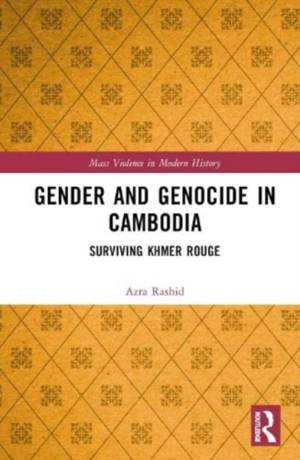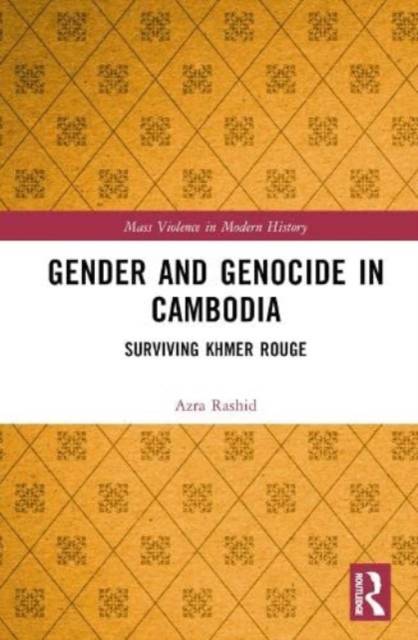
- Afhalen na 1 uur in een winkel met voorraad
- Gratis thuislevering in België vanaf € 30
- Ruim aanbod met 7 miljoen producten
- Afhalen na 1 uur in een winkel met voorraad
- Gratis thuislevering in België vanaf € 30
- Ruim aanbod met 7 miljoen producten
Omschrijving
This book explores the multiplicity of women's experiences in the Cambodian genocide during the four-year rule of the Khmer Rouge.
The dominant discourses of genocide often speak from a patriarchal and national perspective, rendering women speechless, and yet in this volume, the female survivors of the Cambodian genocide testify not only to the specific atrocities committed during the war but also to the pre-war conditions that laid the groundwork for a gender-specific victimization of women and its continuation post-war. With the help of testimonies from Khmer women who joined the Khmer Rouge, women who experienced sexual violence during the Khmer Rouge era, women who fled the country, and the Cham women who faced expulsion from home, this book explores the diversity of women's experiences under the Khmer Rouge. Survivors' accounts show that a Khmer woman's experience with the Khmer Rouge was considerably different from the experience of not only a Khmer man but also a woman from a religious or ethnic minority group or a woman who chose to join the Khmer Rouge. These differences are conveniently ignored in nationalist discourses in Cambodia and by western scholars of history and gender-based violence, and they are given even less consideration in discourses about women survivors in diaspora. Instead of forcing generalization and universalization of gendered crimes of war, Gender and Genocide in Cambodia employs feminist curiosity and closely examines women's experiences under the Khmer Rouge from multiple vantage points.
This volume is essential reading for students and scholars interested in gender and cultural studies, political history, and modern history.
Specificaties
Betrokkenen
- Auteur(s):
- Uitgeverij:
Inhoud
- Aantal bladzijden:
- 178
- Taal:
- Engels
- Reeks:
Eigenschappen
- Productcode (EAN):
- 9781032413976
- Verschijningsdatum:
- 31/10/2023
- Uitvoering:
- Hardcover
- Formaat:
- Genaaid
- Afmetingen:
- 156 mm x 234 mm
- Gewicht:
- 449 g

Alleen bij Standaard Boekhandel
Beoordelingen
We publiceren alleen reviews die voldoen aan de voorwaarden voor reviews. Bekijk onze voorwaarden voor reviews.











